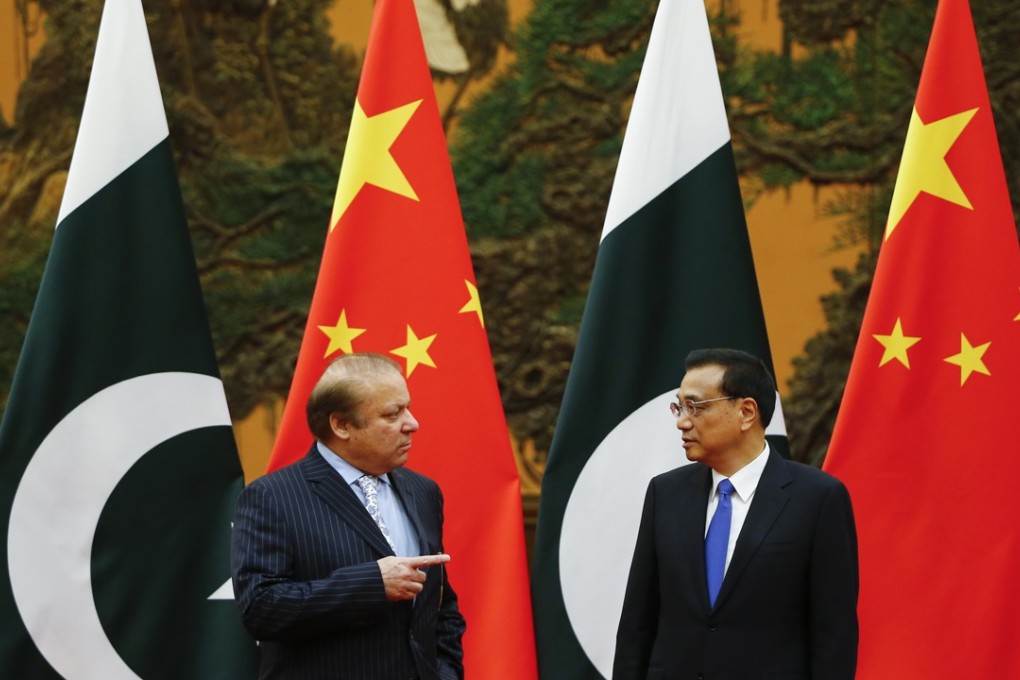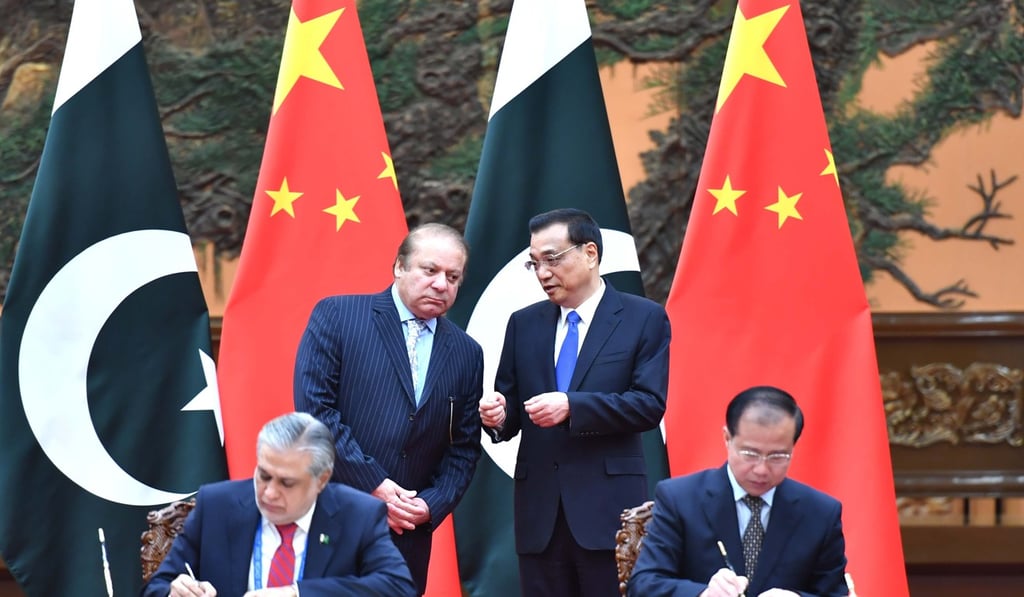What do you get if you cross Pakistan’s Game of Thrones and China’s Belt and Road?
As the US and India join forces, Beijing wants its key South Asian partner to abandon ties with jihadist groups in Afghanistan and disputed Kashmir so that economic corridor plans have a chance of success

China’s high-stakes Belt and Road project in Pakistan has sucked it into the vortex of a power struggle between Pakistan’s elected government and its military on the one hand and an increasingly bitter geopolitical row on the other as the United States and India join forces.
While pushing the US$62 billion China-Pakistan Economic Corridor (CPEC) in a massive vote of confidence in its “all-weather ally”, Chinese officials have quietly encouraged their Pakistani partners to facilitate the success of the project by abandoning its decades-old pursuit of strategic objectives in Afghanistan and Kashmir through the support of non-state jihadis.
These terror outfits have for years been a major bone of contention between Pakistan’s powerful military and its civilian government.
The confrontation began soon after Nawaz Sharif was appointed prime minister in June 2013. He sought to restrict the public activities of Hafiz Mohammed Saeed, chief of the Jamaat-ud-Dawah (JuD) group responsible for the 2008 Mumbai terror attack, and pushed for greater trade ties with India as a way to resume peace talks. The military blocked the move.

Much to Sharif’s chagrin, it became apparent in 2014 that the JuD and other anti-India jihadist groups had resumed infiltrations across the de facto border into the Indian-administered part of disputed Kashmir. Sharif’s government again tried to kick-start stalled negotiations with India in December 2015, but that attempt was scuppered by a terrorist attack on an Indian air force base at Pathankot, in the western state of Punjab. New Delhi said the attack was carried out by Pakistan-based Jaish-i-Mohammed jihadis.